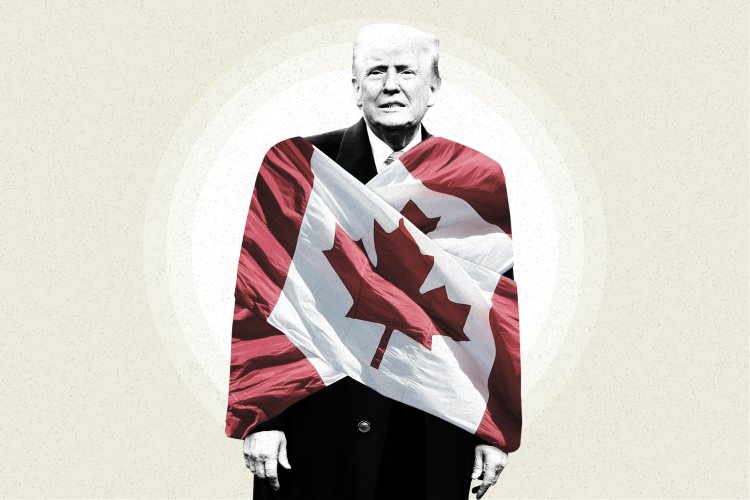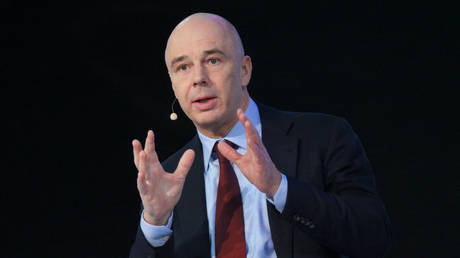Canada declares its friendship with the US is ‘over’—What's Next?
Trump's assertive trade policies have shaken the foundations of what appeared to be a steadfast alliance.

After more than 150 years of economic and military cooperation that endured two world wars, the Great Depression, the Cold War, and the events of September 11, the United States and Canada are parting ways.
This statement was made by Prime Minister Mark Carney during a national television address to 41 million Canadians from Parliament Hill last week. The driving factor behind this significant shift is the tariffs imposed by President Donald Trump.
“The old relationship we had with the United States, based on deepening integration of our economies and tight security and military cooperation, is over,” Carney stated on March 27. “We must fundamentally reimagine our economy. We will need to ensure that Canada can succeed in a drastically different world.”
The strong rhetoric, which has also found some resonance with Carney's Conservative challenger, Pierre Poilievre, highlights the extent of frustration directed at the U.S. that has emerged in the current Canadian federal election campaign. Following repeated comments from Trump about making Canada the "51st state," and the breakdown of economic ties, voters appear to have little desire for soft reassurances.
Carney underscored the seriousness of the situation by repeatedly using the term “O” during his response to Trump’s so-called Liberation Day tariff announcement the previous day. This included implementing 25 percent counter tariffs on U.S. auto imports to Canada in reaction to Trump’s tariffs on Canadian automobiles, steel, and aluminum, aimed at pressuring Canada over a minor issue of fentanyl trafficking across the border.
Historically, the auto industry has symbolized the close Canada-U.S. partnership, beginning in 1965 with the signing of the Auto Pact, which allowed tariff-free trade in automobiles and greatly contributed to the establishment of the industry in Ontario, Canada’s most populous province.
Carney reflected on this history, stating that the pact initiated a “60-year period of close cooperation, partnership, job growth and prosperity. That era has now ended, unless the United States and Canada can agree on a new comprehensive approach.”
Reactions from some U.S. politicians echoed Carney’s sentiments. “[Trump] ended the several hundred year friendship between the US and Canada — our neighbor and closest ally,” remarked Senator Bernie Sanders on X last week.
Senator Lisa Murkowski expressed concern as well: “The tariffs on Canada are going to hurt my state. It’s going to hurt our neighbors there.”
Carney warned that Trump’s tariffs could lead to broader economic ramifications, foreseeing a “rupture” in the global economy and the end of a long-standing era of U.S. dominance that started after World War II.
“The 80-year period when the United States embraced the mantle of global economic leadership, when it forged alliances rooted in trust and mutual respect and championed the free and open exchange of goods and services, is over.”
What comes next? Carney labeled the situation a “tragedy,” but noted that this “new reality” would compel Canada to undertake two critical actions: renegotiate its terms with the U.S. and take the lead in forming a new coalition of aligned nations.
The first task involves renegotiating a new economic and security partnership with Trump following the upcoming April 28 election. Carney reaffirmed that he and Trump agreed during a phone call on March 28 that whoever wins the election will initiate these negotiations.
Both Carney and Poilievre concur on this essential point, notwithstanding their broad disagreements and frequent exchanges of insults during the campaign. Poilievre's occasional criticism of Trump stands out, while he primarily focuses on attacking what he calls the "lost Liberal decade" and trying to link Carney to that history, despite Carney’s lack of prior political office.
“On my first day on the job as prime minister, I will call the president and demand that we rapidly renegotiate the CUSMA agreement on a very tight timeline that will allow us to find certainty,” Poilievre asserted on Thursday, referencing the Canadian acronym for the United States-Mexico-Canada Agreement.
However, a new report from a group that includes a former Canadian Forces vice-chief, a former defense minister from the Brian Mulroney era, and a former national security adviser cautions the next government against entering negotiations with Trump “until there is greater clarity in the current political mayhem in Washington.”
Its title captures the prevailing sentiment in Canada: “Broken Trust: Managing an Unreliable Ally.”
The second course of action outlined by Carney is to seek out new alliances and forge relationships with other nations.
“Canada must be looking elsewhere to expand our trade, to build our economy and to protect our sovereignty. Canada is ready to take a leadership role in building a coalition of like-minded countries who share our values. We believe in international cooperation,” he emphasized on Thursday.
Carney's first international visit after becoming prime minister last month was to France, followed by a trip to Britain, reinforcing Canada’s ties with its two historical colonial powers. He has recently spoken with leaders from Germany and Mexico, and Canada has also signed an agreement with Australia to provide a new radar surveillance system for the Arctic.
On Friday, Foreign Affairs Minister Mélanie Joly addressed European stakeholders in Brussels, conveying a similar message without using Carney's phrasing.
“We know that the relationship will never be the same again,” she stated at a NATO foreign ministers meeting. “That’s my message to Europeans: The relationship with the U.S. will never be the same.”
Aligning with Carney’s sentiments, Joly asserted that Trump is aiming for “a global reset on trade” that began with Canada.
“We buy more from the U.S. than the U.K., France, China, and Japan combined,” Joly noted. “When you treat your best client the way we’ve been treated … it means that you want, fundamentally, to change the way you’re operating.”
She had previously issued a warning during a G7 foreign ministers meeting in Charlevoix, Quebec, last month, saying, “If the U.S. can do this to us, their closest friend, then nobody is safe,” positioning Canada as “the canary in the coal mine.”
In both March and again in Brussels on Friday, Joly reaffirmed that Canada was prepared to exert “maximum pressure” on the U.S. to address the tariffs, which have escalated to a punitive measure totaling C$60 billion.
She characterized the situation as “a nightmare,” expressing that “the only people on Earth that will be able to really have President Trump change course are the Americans themselves.”
Looking ahead, Canada’s renowned bard Leonard Cohen once sang that there’s “a crack in everything. That’s how the light gets in.”
For Canada, that faint glimmer of hope may have emerged in a recent phone call between Carney and Trump. The president referred to Carney as “Mark” and the “prime minister” after months of mockery directed at former Prime Minister Justin Trudeau, whom he called “governor” of the “51st state.”
Since that interaction, Trump has moderated his social media and presidential comments regarding Canada, possibly distracted by the global impact of his new tariff policies.
Nonetheless, Canadians have learned to take nothing for granted when it comes to their relationship with the United States.
On Friday, after two days in his Ottawa office, Carney returned to the campaign trail, visiting Montreal, the heart of Canada’s francophone province, Quebec, to promise increased funding for the Canadian Broadcasting Corporation if elected.
“French culture and language are at the center of Canada's identity, and today that identity is being openly threatened by the president of the United States,” Carney declared in French.
“President Trump wants to assimilate our culture, this culture that defines Quebec and all of Canada. But we will never let that happen. We will protect our culture.”
Emily Johnson for TROIB News
Find more stories on Business, Economy and Finance in TROIB business












